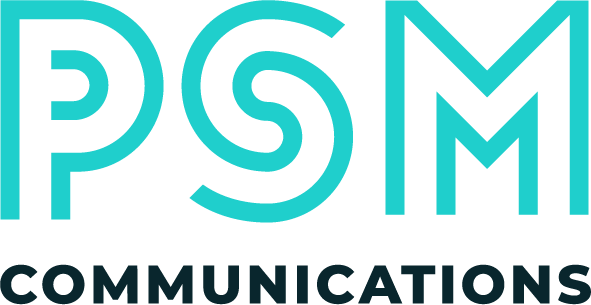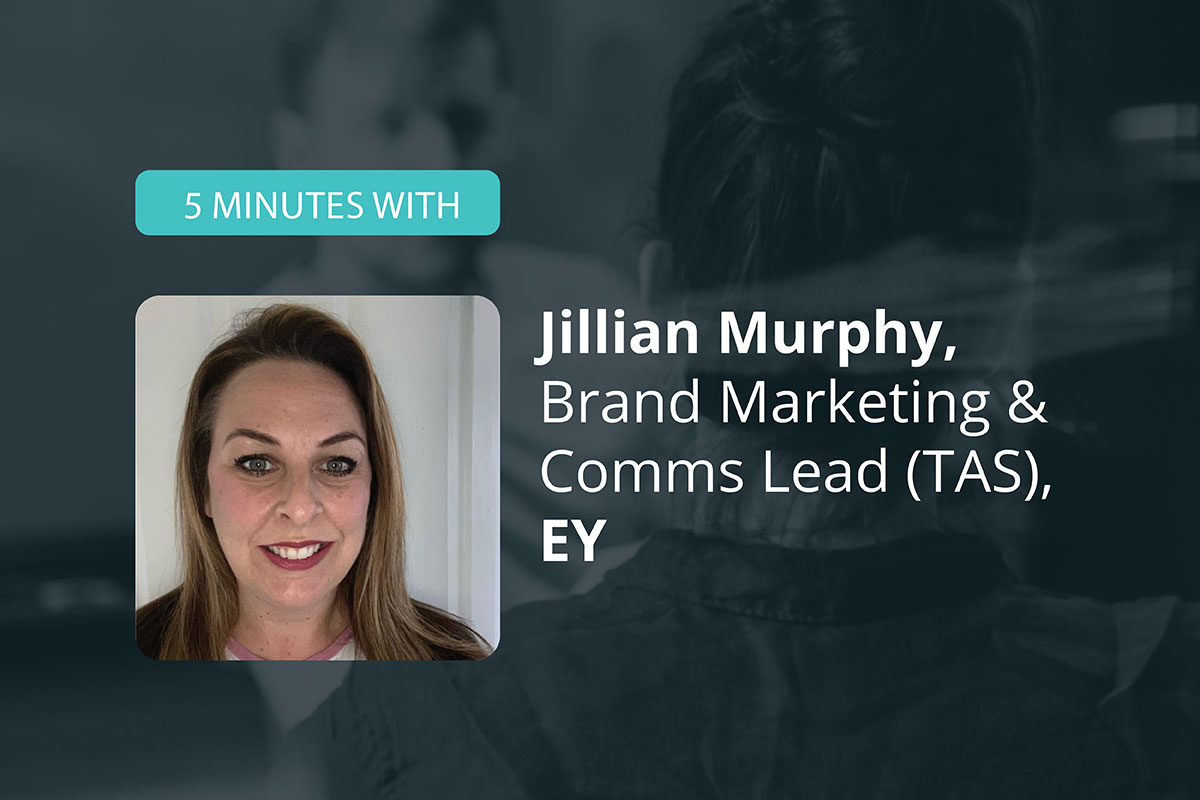This month I’m delighted to be speaking to Jillian Murphy, newly appointed Brand Marketing & Communications Lead for EY’s Transactional Advisory Services (TAS) division. Jillian is an experienced professional services marketer who prior to her new role at EY, held senior leadership roles at KMPG and PwC.
Here’s my 5 minutes with…
What is your marketing background?
I’ve always worked in professional services mainly in Big 4 accounting firms where I’ve had a variety of roles – I’ve done the lot – sector, line of services, flagship programmes, local and global but there is always something different and new to learn.
Congratulations on your new role at EY, what will your new role involve?
I’ve been here since the beginning of January and I am what they call a ‘boomerang’ as I worked at EY 13 years ago in a marketing exec role… In my new role I’m the brand, marketing and comms lead for Transaction Advisory Services (TAS). I’m essentially a marketing business partner to the TAS leadership – setting the brand, marketing and comms strategy and plan and working with different teams to deliver the plan. TAS is an interesting part of the business and a new challenge for me….
You’ve worked in professional services throughout your career what have been some of the biggest changes for you in marketing?
People have multiple devices now and information is so readily available you have to work hard to get to the right people.
Digital has been the biggest change for me. The way that you can use digital to influence and the way you can use analytics to ensure that you are getting to the right people is really powerful. Social listening, content syndication, special interest groups on LI, paid social targeting etc are all really valuable if used in the right way. People have multiple devices now and information is so readily available you have to work hard to get to the right people. The analytics that you also get back can be really useful when you are trying to influence decisions and engage customers and the business.
You’ve rolled out many campaigns throughout your career, what has been the best one you have delivered and why?
When I worked at PwC I was lucky enough to work on the Global Family Business Survey – when I started working with the team – the survey was a piece of content that had so much untapped potential. It was run in across 50+ countries so we had lots of rich data but it had never been run as a marketing programme. We made lots of changes in the first year – we changed the writer, the research company, the design team, and invested a lot of time and effort from a marketing, comms and BD perspective to ensure that we were getting as much value as possible for the business and the brand. Over the years it grew from strength to strength and other programmes and content e.g the global next gen club, family office report and global next gen report were built off the back of the programme that we built around the survey. I learned so much from working on that project and in the team. We didn’t have a media partner, we didn’t launch the findings at any big external event and the social was mainly organic but the ROI was really impressive. It was a real career highlight for me.
What are the fundamentals to you of a good thought leadership campaign?
It’s always worth doing some in-depth interviews (via a third party) to validate your ideas or help you formulate new ones. The business always listen if you tell them that you have client views.
- Build a hypothesis of what you want the story to be – this ensures that you are asking the right questions.
- Test your ideas with clients – it’s always worth doing some in-depth interviews (via a third party) to validate your ideas or help you formulate new ones. The business always listen if you tell them that you have client views.
- Build in opportunities for client engagement – in the form of video or written case studies, interviews or features for the report/ online promotion or as part of a panel or a keynote for face to face launch activity – it gives the business an opportunity to engage with a client/ target in a different way but it also ensures that the business feel accountable for driving success.
- Have one sponsor from the business who has the overall sign-off responsibility but have a panel of others (internal and external SME’s) who help guide and challenge.
- Internal engagement and understanding is key – ensure that internally the story is clear, people understand the alignment to propositions, people are aware of assets and toolkits that can assist them in having the right conversations with the right people. You need a group of well briefed ambassadors who can help you to build engagement and feedback successes.
- KPIs and ROI – ensure that you can articulate the value to the business and that your ROI is aligned to what you set out to achieve.
You have a lot of experience at launching programmes globally; is there any advice you can offer marketers who are struggling to get local colleagues to buy into global campaigns?
For me the key to this is taking time up front to understand who you are communicating with and what they respond well/ less well to. It’s understanding their business (maturity of the market, prioritisation of issues, client base) building up a picture of other initiatives/ campaigns that they are working on and also understanding resource and resource constraints.
It’s also being culturally sensitive to what sort of communication style works well in that market and who needs to be involved so you can give your colleagues what they need in a format they are comfortable with and in a way they can respond to.
Another thing is ensuring that they feel like they are part of the overall team, the bigger picture and the success of the campaign. The biggest thing I learned on global projects is that one size definitely does not fit all and having good emotional intelligence and self awareness is key.
How do you measure the impact of your campaigns?
I think the main thing about measuring impact is being really clear with your stakeholders what your KPIs are and what they should expect reporting on.
It depends on what we set out to achieve – if it’s a lead gen campaign then I’d still report on digital metrics, share of voice etc but my main measure of a lead gen campaign is if we delivered the amount of leads that we said we would to the business and then further down the line monitor conversion. If it’s a brand campaign then the other metrics are more important. I think the main thing about measuring impact is being really clear with your stakeholders what your KPIs are and what they should expect reporting on.
Finally, a common challenge for professional services marketers has been to build a close relationship with consulting colleagues, how have you overcome that challenge throughout your career?
It’s always tricky especially when you’re new as you don’t have any equity with people and they haven’t seen you in action so they don’t know what to expect. For me it’s about being myself – being open with people, demonstrating how you add value to the business, being receptive to feedback and being approachable.

